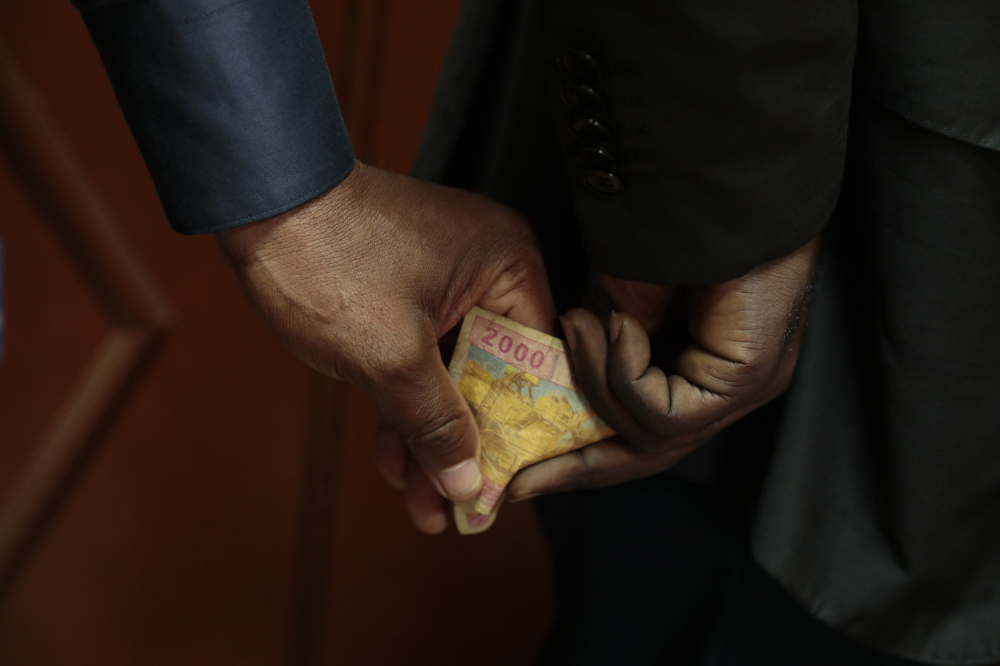Tackling Hate Speech: Time For Zero Tolerance
- by Macdonald AYANG
- 30 May 2023 12:04
- 0 likes

It is often argued that the law alone cannot solve all of society’s problems. This appears to be the case with the phenomenon of hate and xenophobic diatribe in Cameroon. Despite the existence of different pieces of legislation sanctioning the scourge, it continues to flourish in alarming proportions.
No one needs to climb on rooftops to adumbrate the nefarious effects of a vice that is known to have inflicted deep division in many countries around the world. The scenario of hate speech propagated in Rwanda through the infamous Radio Télévision Libre des Mille Collines is just one of many examples. We recall how this radio station contributed to inciting violence that led to the slaughter of hundreds of thousands of members of the Tutsi minority group within a period of 100 days in 1994.
Although the vice of hate speech has existed for as long as the nation Cameroon has, it has however clearly spiralled in the last couple of years by leaps and bounds. This invective is very much seen and heard on the social media where citizen journalism has its mainstay.
So unfortunate is the situation also that, at different times, we have heard the spewing of hateful comments against certain sections of the Cameroonian citizenry on prime-time Sunday debate platforms on TV, sometimes even coming from people who should serve as an example in a sane society.
There are Cameroonians who look at fellow compatriots as an inferior set of people, either because of where they come from or because of their customs and traditions, or even their history. We have heard all sorts of derogatory and pejorative appellations and nomenclatures aimed at one group of Cameroonians or the other. Behold, these are practices that go a long way in straining the bond of our togetherness as a people who should be united in their diversity.
Last week, Communication Minister and Government’s Spokesperson, René Emmanuel Sadi, convened a joint press conference which saw the presence of Territorial Administration Minister, Paul Atanga Nji, and the President of the National Commission for the Promotion of Bilingualism and Multiculturalism, Peter Mafany Musonge, to talk about the rising spate of hate speech in the country.
The presser came not long after some individuals at the recently held South West Peace and Development Forum in Buea were captured on a recording spewing what was described by many Cameroonians as hate speech against citizens from other parts of the country. This is a story for another day.
Now, during the press conference, the Government Spokesperson noted that the phenomenon of hate speech has remained disturbingly on the increase despite the massive danger it poses to our society.
While outlining the different pieces of legislation which sanction hate speech in Cameroon, Sadi urged Cameroonians to shun the vice and remain united in their diversity.
“In view of the dimension that this phenomenon is taking on and the danger that it poses to national life, the government appeals to the collective conscience, patriotism and sense of responsibility of all to preserve our valuable achievements, namely national unity, peace and the stability of our institutions,” said Sadi, while also announcing that plans were afoot by the government to undertake a nationwide civic education campaign to school citizens in the values of peaceful and harmonious cohabitation.
On Monday this week, Territorial Administration Minister Paul Atanga Nji followed up with a statement in which he reiterated government’s resolve to wedge a frontal and uncompromising war against peddlers of hate speech, xenophobia and tribal invectives which, he said, threaten the tap roots of the nation’s existence. This is a laudable move, although it shouldn’t end at just a warning.
The civic education campaign mentioned by Sadi is also important. Through it, some Cameroonians will become more aware of the dangers of hate speech and the need to avoid using it. However, we believe that many Cameroonians are already sufficiently aware of the damaging effects of the vice and that it has the possibility of setting the country alight.
That is why it is our conviction at the Cameroon Insider that for us to make progress in the fight against hate speech, there is need for the carrot and stick approach. While we persuade, we must also seriously punish glaring cases in order to set a precedent like the Territorial Minister has warned.
Some think, and rightly so, that the current laws that sanction hate speech are scattered and not sufficient. This, in some way, means that government must also start considering the need for a specific law that will fundamentally deal with the situation: a law that would sufficiently define the various forms of hate speech patterning to our context and then outline details of persuasive as well as repressive measures which should be taken in case of default. It would even not be out of place, in this case, to criminalise the usage of certain slangs which denote hate for or stigmatization of some tribes or ethnic groups in the country.
Also, all relevant stakeholders such as media actors including journalists and proprietors, civil society activists, community and opinion leaders, social media influencers, political party leaders, and even the church, must also join the campaign train to raise the red flag against hate speech.
While it is true that the phenomenon of hate speech and xenophobia will continue to exist giving the increasingly polarised nature of society and the natural animal instincts of man, it is however possible to bring its occurrence and recurrence to the lowest echelon possible. Ours is a nation that is young and still ambitious for growth, prosperity and development. We need concerted action in order to tackle and exterminate tendencies like hate speech and xenophobia which are inimical and antithetical to such a positive trajectory.








Comments